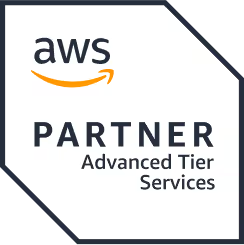In today's modern business world, data is at the forefront of everything we do. From the way we communicate with our customers to the way we make decisions about our products and services, data is playing an increasingly important role.As a result, businesses are under pressure to find new and innovative ways to collect, manage, and use data. One of the most common ways they’re doing so is through data warehouses, which provide organizations with a means of consolidating all their data into a single, centralized repository.In this article, we'll go over the topic of data warehouses - specifically the Snowflake cloud data warehouse - and the benefits it can offer your company.
Data Warehouses Defined
A traditional data warehouse is a database that is designed to store and analyze large volumes of data and data types, usually from multiple sources. It is typically used by businesses to support decision-making and business intelligence activities. Data warehouses are often used in conjunction with online analytical processing (OLAP) systems, which enable users to perform complex data analysis tasks.
What's The Point Of Having A Cloud Data Warehouse?
The main purpose of having a data warehouse is to enable businesses to make better decisions by providing them with access to more accurate and up-to-date data. Data warehouses also make it possible to consolidate data from multiple sources into a single repository, making it easier to analyze and query.Check out these blogs about Snowflake:
- How to Get Started with the Snowflake Data Cloud
- Snowflake and HIPAA Compliance
- Why Ideas2IT Should Implement Your Snowflake Solution
What Is The Snowflake Cloud Data Platform?
Founded in 2012, Snowflake is an industry-leading, fully managed SaaS. An all-in-one platform, it reimagines traditional data warehousing for the cloud era. Rather than using traditional, on-premises hardware, the Snowflake warehouse runs on Amazon Web Services (AWS), Microsoft Azure, and Google Cloud Platform (GCP).
What A Snowflake Data Warehouse Has To Offer
Snowflake Cloud Services: Snowflake cloud employs ANSI SQL for its cloud based data services, empowering users to optimise their data's infrastructure and management. Available services include authentication, metadata management, query parsing and optimization, infrastructure management, and access control.Query Processing: Snowflake's compute layer consists of virtual warehouses that allow users to analyze data via requests. Each of these warehouses operates as an independent cluster, meaning that Snowflake cloud data warehouses do not compete for computing resources or affect one another’s performance.Cloud Storage: Organizations use the Snowflake virtual warehouse as a place to hold their uploaded structured and semi structured data sets. Snowflake automatically handles all aspects of this function, including organization, file size, compression, structure, metadata, and statistics. Supported Snowflake data types include CSV, JSON, AVRO, ORC, PARQUET, and XML.

Credit: National Cancer Institute
Five Reasons Why A Snowflake Database Is The Right Choice For Your Needs
Snowflake offers a number of benefits to organizations looking to streamline their data management processes. Here is a breakdown of the top five.
1. Near-Limitless Scalability
One of the most appealing aspects of Snowflake data services is its scalability. There are no set Snowflake warehouse sizes - the software is designed to grow with your organization, meaning that it can handle an increasing amount of data as your business expands. This is thanks to its robust multi-cluster resource isolation architecture, which allows you to add as many concurrent workloads and users as you need without having to worry about performance. The platform’s single engine is a serious confidence booster, honing the ability to power everything from analytics and feature engineering to complex data pipelines. A Snowflake data pipeline, once built, can be executed at any scale without having to make changes to the code.
2. SQL Support
Another key benefit of Snowflake data cloud solutions is its support for SQL. This makes it easy for organizations to query their data and get the answers they need in a format that is easy to understand. Additionally, the Snowflake data model's SQL support means that data integration with other software applications that use this language is a breeze.
3. Simplified Automation
The benefits of automation are obvious, yet still hard to fully reap for some organizations. With its simplified automation feature, Snowflake makes it easy for organizations to take advantage of the benefits of automation without having to worry about the complexities often associated with this technology. This feature enables users to schedule and monitor their data loads, automate the creation and management of their databases, as well as handle everything pertaining to data, governance, availability, data resiliency and security data needs. Built upon a highly reliable framework, this Snowflake service offers organizations with a fast and accurate means to move their data.
Want to Implement Snowflake but Don’t Have the Engineers?
We can help with that.
Learn About Our Snowflake Services
4. The Abolishment Of Data Silos And Data Sharing
Data silos have long been a thorn in the side of organizations, yet few have been able to effectively address this issue. The Snowflake data share feature helps to abolish data silos by allowing users to securely share data sets with other users and groups. Snowflake data sharing is made possible through the use of virtual private databases, which are isolated database instances that can only be accessed by authorized users. Snowflake data governance controls also help to ensure that only authorized users have access to sensitive data sets.
5. Cross-Cloud And Cross-Region Connectivity
In today's business world, it is not uncommon for organizations to have data spread out across multiple cloud services and regions. This can make it difficult to get a complete picture of what is going on within the organization. Snowflake's cross-cloud and cross-region connectivity features make it easy for organizations to connect their data in real time, regardless of where it is located. This not only gives Snowflake customers a more complete view of the organization, but also allows them to easily share data sets with others, regardless of location.
Ideas2IT for Certified Engineers
If your business could benefit from the likes of streamlined, high-capacity data lake management, then Snowflake data warehousing may be for you. To learn more about how this storage and computing technology can benefit your organization, use our interactive Snowflake Pricing Calculator.






.png)
.jpg)
.jpg)

.png)






.avif)
.avif)

.avif)


















%20Top%20AI%20Agent%20Frameworks%20for%20Autonomous%20Workflows.avif)


%20Understanding%20the%20Role%20of%20Agentic%20AI%20in%20Healthcare.png)
%20AI%20in%20Software%20Development_%20Engineering%20Intelligence%20into%20the%20SDLC.png)
%20AI%27s%20Role%20in%20Enhancing%20Quality%20Assurance%20in%20Software%20Testing.png)

.png)






%20Tableau%20vs.%20Power%20BI_%20Which%20BI%20Tool%20is%20Best%20for%20You_.avif)
%20AI%20in%20Data%20Quality_%20Cleansing%2C%20Anomaly%20Detection%20%26%20Lineage.avif)
%20Key%20Metrics%20%26%20ROI%20Tips%20To%20Measure%20Success%20in%20Modernization%20Efforts.avif)
%20Hybrid%20Cloud%20Strategies%20for%20Modernizing%20Legacy%20Applications.avif)
%20Harnessing%20Kubernetes%20for%20App%20Modernization%20and%20Business%20Impact.avif)
%20Monolith%20to%20Microservices_%20A%20CTO_s%20Decision-Making%20Guide.avif)
%20Application%20Containerization_%20How%20To%20Streamline%20Your%20Development.avif)
%20ChatDB_%20Transforming%20How%20You%20Interact%20with%20Enterprise%20Data.avif)
%20Catalyzing%20Next-Gen%20Drug%20Discovery%20with%20Artificial%20Intelligence.avif)
%20AI%20Agents_%20Digital%20Workforce%2C%20Reimagined.avif)
%20How%20Generative%20AI%20Is%20Revolutionizing%20Customer%20Experience.avif)
%20Leading%20LLM%20Models%20Comparison_%20What%E2%80%99s%20the%20Best%20Choice%20for%20You_.avif)
%20Generative%20AI%20Strategy_%20A%20Blueprint%20for%20Business%20Success.avif)
%20Mastering%20LLM%20Optimization_%20Key%20Strategies%20for%20Enhanced%20Performance%20and%20Efficiency.avif)

.avif)





.avif)


.avif)


.avif)





































